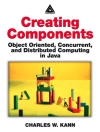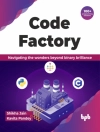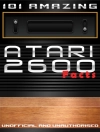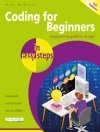A book about wikis! That’s what people need. Because with wiki technology, lots of people can freely work – gether – they can even generate very large works in the intellectual realm. See for yourself: Today, we still marvel at our massive church buildings, each c- structed over a period of centuries, requiring an immense amount of labor and often bearing the cultural stamp of all of the epochs during which it was created. Someone just has to begin by placing stone upon stone and motivate the people nearby to help out a bit. In places where such enthusiastic fellow men and women lend a hand and donate materials, great things can emerge. And where they are absent? Either scant ruins remain, or the iron will of a pharaoh is – quired, an army of drivers, the sweat of a people and a mountain of gold. Great things can also be created in that way – take the Py- mids: a clear concept, no blending of styles, pure will. Those are two very different paths. The one entails passionate people devotedly building something together for the common good; the other: a single will manages a variety of resources to achieve a set goal. Wikis are tools with which lots of people with a minimum of – ganization, planning, money and time can create something together and communicate with each other from several scattered computers or over the Internet.
Daftar Isi
The Wiki Concept.- The Wiki Concept.- Our First Wiki.- The Installation.- First Steps.- The Core Functions of Media Wiki.- Formatting.- Multi-Page Structures.- Components: the Function Pages.- Administration.- Life in Media Wiki.- TWiki, the Jack of all Trades.- Installing TWiki.- Working with TWiki.- Formatting in TWiki.- Searching in TWiki.- User Permissions in TWiki.- Administering TWiki.- Designing a TWiki.- TWiki as a Project Kit.- Preliminary Thoughts.- Conceptual Phase: Collecting Ideas and Outlining the Project.- Composing the Project Plan.- Preparing for Your Event.- Executing and Documenting an Event.- Tools with a Future.- Tools with a Future? Technical and Social Outlook with Wikis.
Tentang Penulis
Anja Ebersbach studied Information Science, History and English. She has filled various teaching positions at a variety of universities and technical colleges, and is active as a freelance IT trainer. She is currently working on her doctorate.
Markus Glaser studied Information Science, English and Psychology. He is currently working as a scientific assistant at the library of the University of Regensburg and has just begun working on his doctorate on Web-Based Collaborative Processes.
Richard Heigl studied History and German Philology. He completed his doctorate in Contemporary History. He is a freelance instructor for communication training and software applications, and works as a consultant on organizational development.












